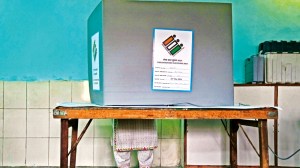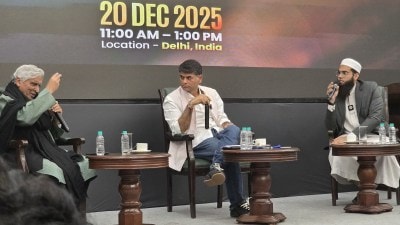Stay updated with the latest - Click here to follow us on Instagram
2 yrs after IISc tested telecom equipment,govt yet to set up lab
Prof N Balakrishnan was tasked by home ministry in 2010 to prepare a framework for regulation and safety certification of telecom equipment.
It has been over two years since the Indian Institute of Science demonstrated that telecommunications equipment imported for billions of dollars every year can be tested and certified for safety,but the government is yet to put such a system in place.
The lack of a system to test the vulnerabilities of such equipment imports of which grew from Rs 52,441 in 2011-12 to Rs 53,971 crore last year leaves Indias communication network exposed to possibly crippling malware attacks.
Indeed,the lack of a state-mandated lab for equipment testing is why foreign suppliers are not willing to subject to safety certification in India,said Prof N Balakrishnan,associate director of the IISc.
Prof N Balakrishnan was tasked by the home ministry in 2010 to prepare a framework for regulation and safety certification of telecom equipment after security agencies expressed concerns over Chinese equipment. In 2011,the IISc in collaboration with the Department of Telecommunications,demonstrated that safety testing can be done in India.
IIScs role was only to create proof of a concept lab which we did. We took some equipment for illustrative purposes and showed that it can be done. We cant do routine testing because there are 200 different types of equipment that will come, Prof Balakrishnan said.
For full-fledged testing and certification of imported equipment,the DoT will have to create and designate a lab,he said. Though some effort has been made in this direction,including identification of the manpower required,the lab is yet to take shape.
The process of setting up a lab takes some time in the government. I know they are quite serious, Prof Balakrishnan said. But I think right now this topic is not being discussed by the ministry concerned.
He said a mandated lab was essential to persuade foreign suppliers to subject their equipment to testing. India needs to have these certification capabilities. Companies such as Huawei of China,which has garnered the largest share of the telecom equipment market,will not subject equipment to testing if it is not at a mandated lab, he added.
For their 2011 demonstration,the IISc and the DoT had purchased equipment from Huawei,Juniper and Abaya on the open market and tested them to validate procedures and methodologies.
There are certain kind of inputs from vendors that are needed such as detailed design diagram,which they will give only to a testing lab and not to an academic or any other institution. In higher levels of testing,you may even need the source code. They will not give that to you, he said.
He also said there is much business scope in telecom equipment testing and at least two firms,including Wipro,are interested. Wipro and others are exploring the opportunity to set up telecom equipment testing businesses. This testing is not for India alone. There are other countries that are major consumers and would like a neutral third party to do the testing, he said.
Besides,setting up a mandated lab carries great strategic importance,Prof Balakrishnan said. Countries respect only those that have such capabilities. It would be easier for us to do a lot of things if we set up a lab of our own, he said.







